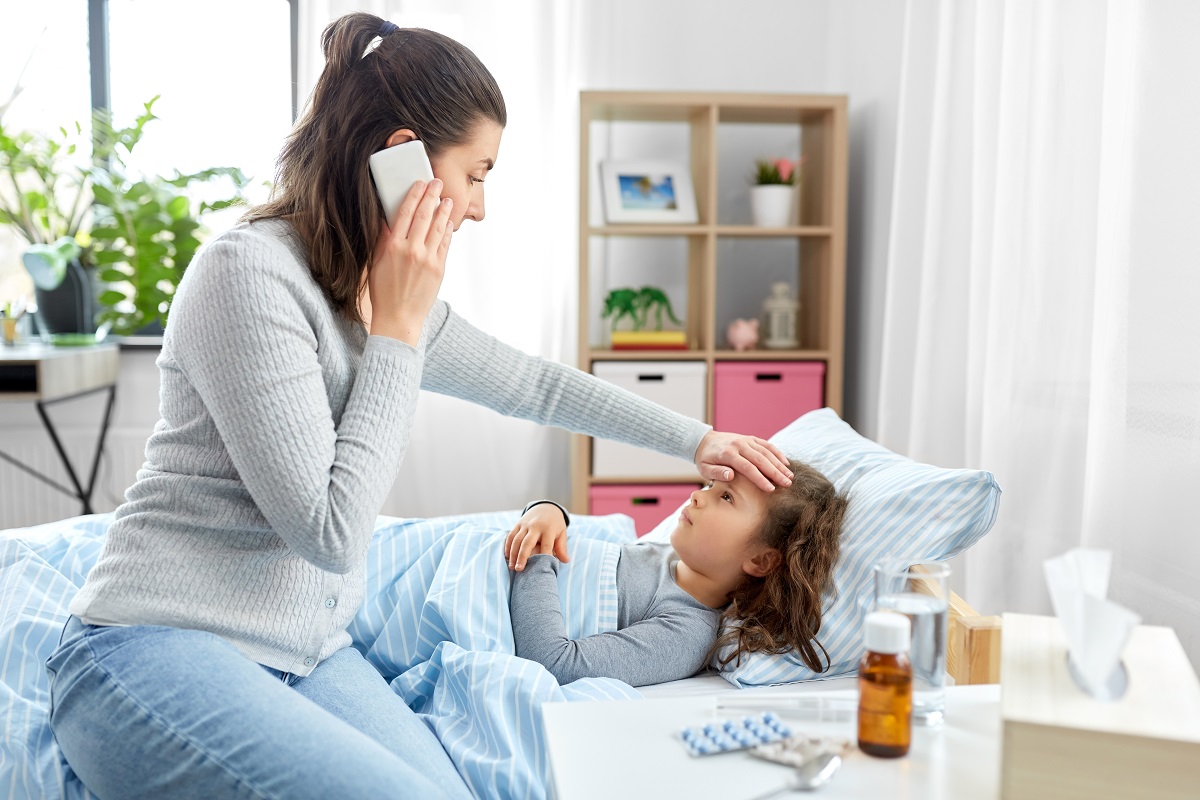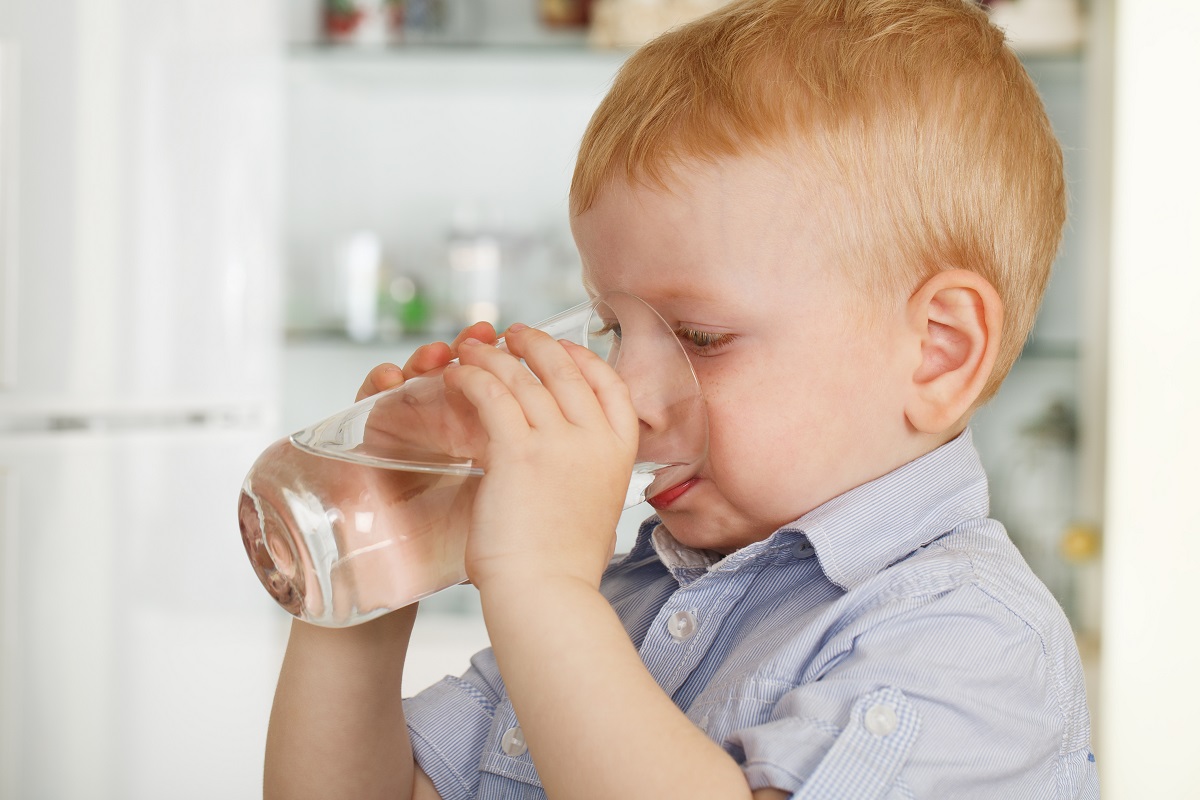- Monitoring your child’s symptoms, isolating them if they show signs of COVID-19, and contacting a healthcare provider are crucial first steps in managing a potential infection.
- Regular symptom tracking, immediate medical attention for severe conditions, and maintaining a record of symptoms’ onset are key to effective management.
- Isolating the infected child, cleaning high-touch surfaces regularly, and limiting their interaction with family members is essential to control the spread of the virus.
- Rest, sufficient hydration, and proper nutrition are fundamental in supporting the child’s immune system and facilitating recovery from COVID-19.
Several key factors must be considered if you suspect your child may have contracted COVID-19. Ensure your child rests, stays hydrated, and eats nutritious food to support their immune system. Read on to learn more.
Contact Healthcare Provider

Contacting your healthcare provider is crucial if you suspect your child has contracted COVID-19. It’s vital to seek professional advice, as medical practitioners are best equipped to evaluate symptoms and give appropriate recommendations. Sometimes, your healthcare provider will guide you towards specific COVID-19 testing services.
These services, crucial in identifying and containing the virus, vary in method and speed of results, such as Polymerase Chain Reaction (PCR), rapid antigen, and antibody tests. The choice of test often depends on the availability and your child’s symptoms. It’s always important to remember that testing is a key strategy in managing the spread of the virus, and getting tested protects your child and everyone else they may come into contact with.
Follow Health Guidelines
The next step in managing a potential COVID-19 case is to meticulously follow the health guidelines set by trusted health organizations and your local health department. Here are some tips:
Monitor Symptoms
Regularly monitoring your child’s symptoms is critical in managing COVID-19 effectively. Monitor for escalating symptoms such as persistent fever, cough, difficulty breathing, or signs of dehydration. It is also important to remain vigilant for signs of emergency, including difficulty breathing, persistent chest pain or pressure, sudden confusion, inability to wake or stay awake, or a bluish tint on the lips or face.
Any of these symptoms warrant immediate medical attention. Note when symptoms started, as this could be important information for healthcare providers. Use a thermometer to check for fever and note any changes in the child’s behavior or energy levels. Children may present different symptoms to adults, and vigilance is key to promptly ensuring your child gets the necessary care.
Isolation
If your child is showing symptoms of COVID-19 or has tested positive, it is crucial to isolate them from others in the household to help prevent the virus’s spread. Ensure they stay in one room as much as possible and use a separate bathroom if available. Limit their interaction with pets and other family members.
Remember to frequently clean high-touch surfaces and objects in their room. It’s also important to wear a mask and gloves when providing care to avoid transmission. Try to maintain a positive environment and engage your child in safe, solitary activities like reading or watching their favorite shows.
Though challenging, isolation is a key tool in managing and controlling the spread of COVID-19. Remember, isolation durations should be by health guidelines — generally 10 days from symptom onset or from the positive test date if asymptomatic.
Rest
While dealing with COVID-19, adequate rest is paramount. Ensuring your child gets ample sleep is critical to supporting their immune system and facilitating recovery. Rest can help the body focus its energy on combating the virus. In addition to regular sleep, encourage your child to take short naps or breaks throughout the day to limit their activities and conserve energy.
Moreover, ensure their sleeping space is comfortable and conducive to good rest. This includes maintaining a cool temperature, limiting noise, and ensuring the room is dark at night. Furthermore, consider adopting calming bedtime routines, such as reading a book or listening to soothing music, to help your child relax and fall asleep more easily. Limiting screen time before bed is also advisable, as the blue light emitted by screens can interfere with sleep patterns.
Hydration

Keeping your child well-hydrated is essential in managing a potential COVID-19 infection. Frequent fluid intake helps to thin the respiratory secretions and alleviates symptoms like a dry cough and sore throat. Provide water, herbal teas, or clear broths regularly. Fluids also help to replace the water lost due to fever and prevent dehydration.
Dehydration can exacerbate COVID-19 symptoms and hinder recovery, as the body needs adequate hydration to function optimally and fight off the virus. If your child resists consuming plain water, consider offering rehydration solutions, diluted fruit juices, or popsicles.
Caffeinated or sugary drinks should be avoided as they can lead to further dehydration. Monitoring for signs of dehydration like decreased urination, dry lips, and fatigue is essential. If your child refuses to drink or shows signs of severe dehydration, seek immediate medical attention.
Nutrition
Proper nutrition is fundamentally important when dealing with a potential COVID-19 infection. A well-rounded diet abundant in fruits, vegetables, lean proteins, and whole grains can supply the vital vitamins and minerals needed to fortify the immune system. In particular, foods high in vitamin C, D, and zinc have been linked with improved immune response.
While the child is ill, appetite may decrease. In this case, encourage smaller, more frequent meals. Hydrating, nutrient-dense foods like soups and smoothies could also be beneficial. Do your best to limit your intake of processed foods, as these tend to be high in sodium, sugar, and unhealthy fats, which can exacerbate symptoms and delay recovery. Equally important is supporting your child’s gut health by incorporating probiotic-rich foods like yogurt. Good nutrition can fortify your child’s immune system to fight the virus and speed recovery better.
Navigating through a potential COVID-19 infection in your child can be challenging. Remember, your actions protect your child and contribute to controlling the virus’s spread. So stay vigilant, informed, and proactive. Your child’s health and well-being depend on it.
